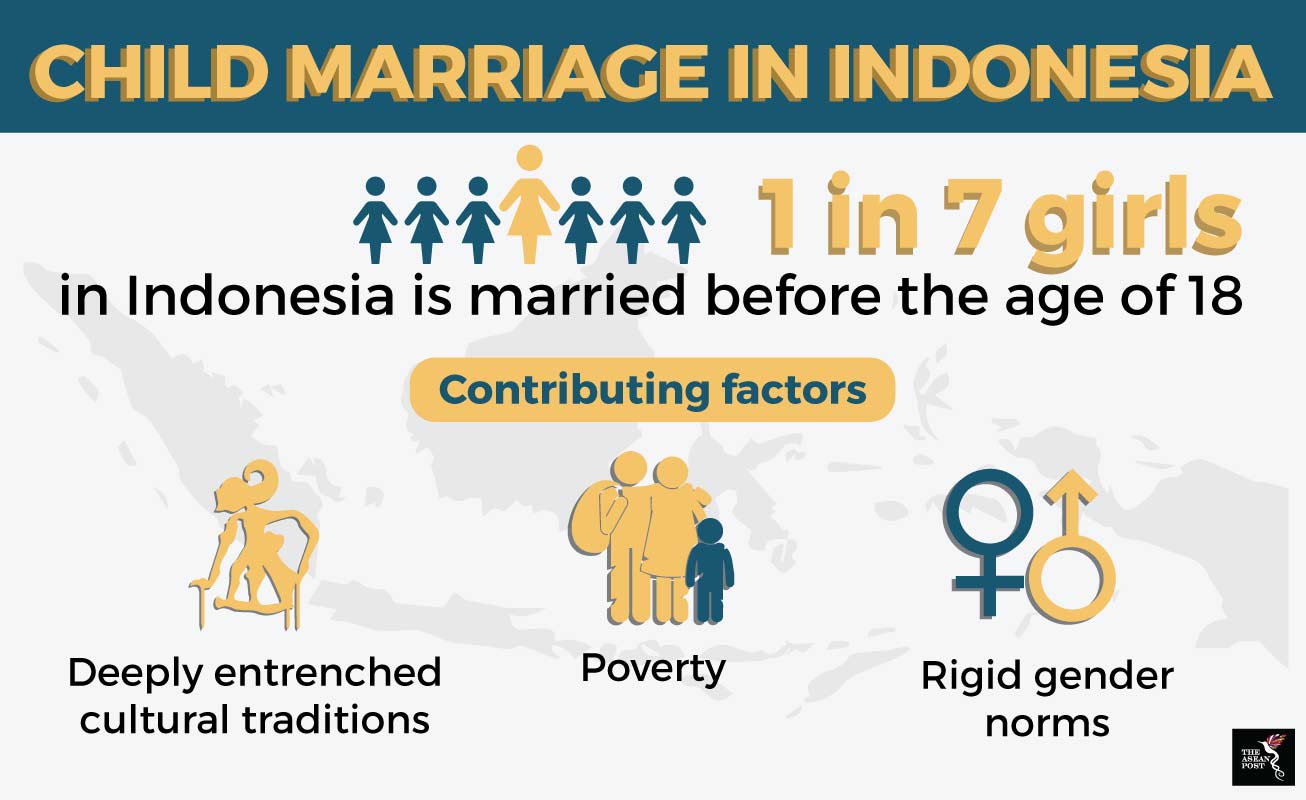The region’s most populous country, Indonesia, could be close to ending child marriages soon. On Thursday, Indonesia’s Constitutional Court ruled that the 16 years old minimum age requirement for women to marry is unconstitutional and that the government needs to change the minimum age for brides.
The petition to the high court was filed by three child bride survivors with the backing of a coalition of campaigners and organisations against child marriage. The petition argued in Indonesia’s highest court that the current 1974 marriage law which stipulates the legal age for girls (16 years) and men (19 years) to get married is discriminatory.
While the court did not specify that the change in the minimum age should be either an increase or a decrease, many see this ruling as an opportunity to push the minimum age for brides. The court refused to grant the plaintiffs demand to raise the minimum age for women to marry and has instead thrown down the gauntlet to legislators in Parliament to increase the minimum age.
The court also set a deadline of three years for legislators to reform the law. Failing which, the minimum age requirement for marriage would be harmonised with the 2002 Child Protection Law, which defines a child as someone below 18 years old.
This decision from the highest court in Indonesia is seen as a victory for campaigners who have long fought against child marriage in the country. This victory is especially sweet as previous petitions filed in court to review the law had failed.

Source: Girls Not Brides
Child marriage in Indonesia
Campaigners in Indonesia have long argued that child marriage contributes to the country’s high maternal mortality rate. Child marriages often negatively affect the married children both, physically and psychologically as they are deprived of a normal childhood and are expected to raise children. The safety of the children in these marriages are also in question. In September, a teenage bride died after alleged domestic abuse.
Currently, Indonesia is among the 10 countries with the highest absolute number of child brides - 1,408,000 women aged between 20 to 24 who were married before the age of 18. According to worldwide anti-child marriage organisation, Girls Not Brides, an estimated one in every seven girls in Indonesia is married before the age of 18.
With the possibility of the minimum age being raised, many are hoping that it could lead to the end of child marriage in Indonesia. However, while the move is obviously welcomed by most, some feel that the change in legislation may not be enough. Even with the current law which states the minimum age for a bride needs to be at least 16, there are still many marriages which involve brides younger than that.
To end child marriage would require not only a change in legislation but an overarching strategy from the government to tackle its root causes. Among the root cause includes deeply entrenched cultural traditions in certain societies. To tackle this, the government must not only rely on non-governmental organisations (NGOs) to raise awareness on the consequences of child marriage, but it must also step up to the plate and play its part.
There is also a socioeconomic aspect driving child marriages that needs intervention from the government. Child marriage is often seen as a way out of poverty for families. Some families feel that they are securing the future of their children by marrying them off as well as reducing the number of dependents in the family. Ensuring that rural communities in Indonesia have access to education, welfare and healthcare could be one of the long-term solutions to eradicating child marriage.
Above all, the government needs to be vigilant and strictly enforce any increase in the minimum age. It also needs to ensure that the exemption that allows parents to marry-off their children with the support of a religious or civil court under the current law is done away with.
The ruling of the constitutional court is the first of many steps to end child marriage in Indonesia, but does the government have the political will to follow through?
Related articles:
Child brides: Unravelling the issues
The push to end violence against women
